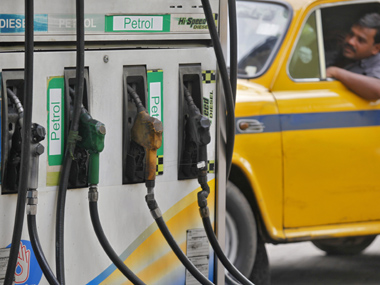Governments the world over play to galleries and often make knee-jerk reactions with an eye on winning public sympathy and approbation but when the same is done by the judiciary and quasi-judicial bodies, it is a cause for alarm and concern. It is against this backdrop that the recent National Green Tribunal’s (NGT) ban on diesel vehicles of 10 year vintage from plying on Delhi roads raises eyebrows and concerns. [caption id=“attachment_2689426” align=“alignleft” width=“380”]  Reuters[/caption] First of all, the technical issues. A study by IIT Kanpur has conclusively proved that vehicular pollution accounts for hardly 2 percent of Delhi’s unacceptably high polluted air, with biomass emissions, construction dust and emissions from coal-fed ovens and plants being the main culprits. It was the duty of the executive and its lawyers to make a proper presentation before the NGT highlighting the contributory factors in their proper perspective. That perhaps would have sobered down the NGT’s instinctive proclivity to rile against the most convenient whipping boy—-the diesel vehicles. Secondly, there are logistical issues laced with technical that have been turned a blind eye to. Where will the lakhs of vehicles be kept? Will they be shifted to other states, both neighbouring and distant? Would the NGT in that case not be guilty of shifting the problem to other states in the manner of European nations dumping their electronic waste in third world countries? The government should have submitted its blue print to the NGT about its seriousness in speeding up mass rapid transport system in Delhi including expanding the metro rail footprint. The Delhi government should also have impressed on the Petroleum Ministry to bring down the sulphur content in the diesel so as to comply with BS VI norms from which we are lagging behind considerably. Thirdly, what about those who are caught in the cross-fires? Automobile industry has invested heavily in assembly lines and technology for diesel vehicles. They obviously cannot be expected to dismantle all these suddenly especially if other states follow suit in keeping with our herd instincts. And with the advent of app-based taxi hailing, thousands of drivers have borrowed heavily to run taxis for their livelihood honourably. Their dreams would go up in smoke as would those of banks which have advanced them loans. NPAs could mount, this time round from the self-employed sector. It is true that it took the Supreme Court to order CNG, a clean fuel, for public transport vehicles that helped Delhi to reduce pollution levels considerably. But it is one thing to order a new technology or fuel and quite another to order a disruptive ban with its ripple effects. CNG brought about a revolution in terms of employment and business opportunities but ban on diesel vehicles would be counterproductive and disruptive besides being a wrong solution to a vexed problem. Diesel cars have been the favourite whipping boys of NGOs and judiciary. They have come to symbolize, rightly or wrongly, elitism. Diesel cars especially the large SUVs are bought by the rich and the famous for their macho appeal as well as their cheapness both in terms of one time purchase cost and running expenses. But then the government is to blame for its wrong fiscal policy when it comes to diesel vehicles. The cheapness in manufacturing cost should have been mopped up through a stiff impost. And diesel is no longer the fuel for the poor farmer running his tractors. Therefore at least in urban petrol pumps, diesel must be sold at a price comparable to petrol. In the US, diesel is more expensive than petrol, with the reason being refineries produce far less quantities of diesel. The sooner we bring about parity between diesel and petrol prices the better. It is good that the AAP government is going to file an appeal against the ill-thought-out verdict of the NGT.
Diesel cars have been the favourite whipping boys of NGOs and judiciary.
Advertisement
End of Article


)

)
)
)
)
)
)
)
)



